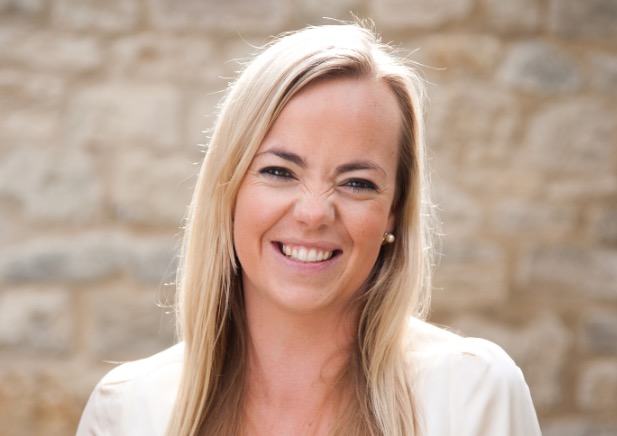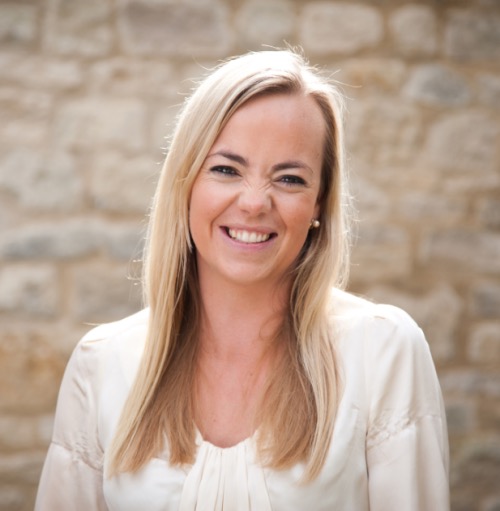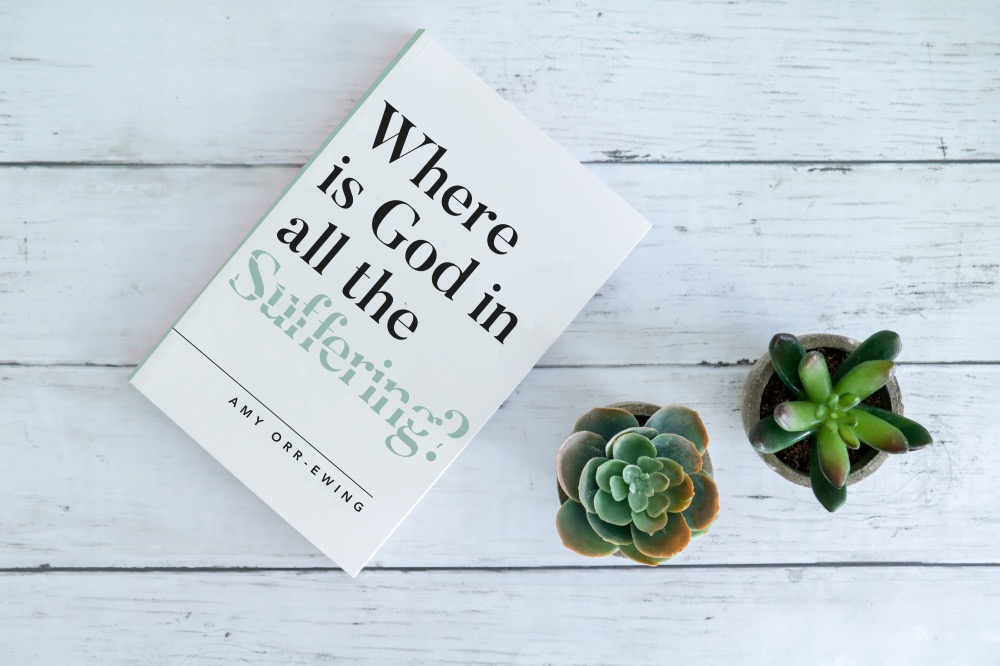
Best-selling UK-based Christian author, speaker and lecturer Dr Amy Orr-Ewing speaks with DAVID ADAMS about her new book, ‘Where is God in all the Suffering?’…
Best-selling UK-based Christian author, speaker and lecturer Dr Amy Orr-Ewing recently released her latest book, Where Is God in All the Suffering?. Orr-Ewing, who is the president of OCCA The Oxford Centre for Christian Apologetics and a senior vice president at RZIM, speaks about why she decided to write a book addressing the issue of suffering, how her experience in the aftermath of the Grenfell Fire disaster of 2017 shaped her views and the connections between suffering, love and justice…
Congratulations on the book. You mention at the start of the book that addressing this issue can be a bit academic at times – I gather part of why you wanted to write a book on suffering was to counter that sort of approach?
“Thankyou…[Writing the book] was less to kind of counter that approach and more to sort of marry the robust answers that the Christian faith offers to this question…with the real life experience of what the Christian life offers us in a suffering world. In my experience, often a book or talk is strong in one of those two directions and I wanted to try and do something that really kind of brought both together…”

Dr Amy Orr-Ewing.
“It actually took the breath from me, that experience, because I realised that what the Bible says about God’s judgement is really good news to a suffering world.”
– Dr Amy Orr-Ewing, speaking about her experience in the aftermath of the Grenfell fire disaster of 2017 when, at a service, the entire community applauded a Psalm spaking about God upholding the needy but the wicked being cast to the ground was read out.
Who were you aiming the book at? I gather – because you do engage with other worldviews in the book – it is for both Christians, seekers and others who might be interested?
“Absolutely. So the idea of the book is that someone who is open to asking ‘Who am I?’ and ‘What’s going on in the world?’ and ‘Is there a God?’ could read this and actually be introduced to who God is…in this suffering world. But [it’s] also to equip Christians. I think, for a lot of us, when we go through an experience of suffering, it can be an experience of shaking faith and a similar approach [to that] if you’re outside the faith is actually really helpful if you are a Christian…”
I was interested to see your involvement in the aftermath of the Grenfell Tower disaster in 2017. What was the biggest lesson that you took away from that experience of being involved with people in the aftermath of that?
“I tell the story of being there, on the ground, within a couple of days of the fire event [and how] my husband [Frog] and I were asked to lead a sort of public service…It was fascinating as the Scripture was read from the Psalms about God upholding the needy but the wicked being cast to the ground…[A]s that Scripture was read the entire community – the vast majority of whom were not church-goers but who had come just to process what had happened – erupted into applause. It actually took the breath from me, that experience, because I realised that what the Bible says about God’s judgement is really good news to a suffering world…[T]hat really, really caused me to reflect on what worldviews can account both for the sacredness of life and for our cry for justice. And actually the Christian faith uniquely does that. I knew that already academically, I knew that theoretically, but I experienced it in a really powerful way…”
That sense of justice – is that about, do you think, giving some sort of sense of greater meaning as you go through suffering?
“[T]he Christian faith tells us that every human being is created in the image of God and that, therefore, human life is undeniably sacred and so…[even with someone I’ve never met] something innately within me tells me that their life matters, that there is a purpose to their life, [that] it ought to be precious and preserved and honoured…I think there’s an explanatory power in that which is really helpful.
“But also there’s a deep truth to the goodness of God’s judgement if and when I suffer…The reality is the statistics tell us most victims will not get human justice in this life…But if God exists, if the Christian faith is true, then all of us, whomever we are, will stand before the judgement seat of Christ and that means that [while] my experiences of violence – or my friend’s experiences of violence – will probably go unpunished in this life, I am not left without ultimate justice as a victim, as someone who is really suffering. And that means that I might be able to have the power to forgive, I might be able to have the power to release that suffering and experience some kind of mental or psychological release in this life, knowing that I can trust ultimately that there will be judgement. And I can also know that my own sin, the things that I’ve perpetrated against others, that if I come to Christ, that I can receive forgiveness…”
One of the other themes you unpack in the book is the connection of suffering and love and you talk about the fact that “Suffering loss is the cost of having deeply loved”. Does that then mean that suffering is then an inevitable part of life, particularly as Christians who are called to love others?
“[I]n the Christian faith we see this kind of very deep explanation of the connection of love and suffering and ultimately our God willingly subjects Himself to suffer for love of us – we encounter our God of love walking in human history in the person of Jesus…And what it means is that a relationship with our loving God doesn’t mean disconnection from suffering; it doesn’t mean an expectation that if God loves me, He’s going to protect me with a bubble which means I will never suffer. I think sometimes perhaps our expressions of Christian faith or explanations of the Gospel have led to people thinking ‘If I come to God, because He loves me, I’m never going to suffer and if I suffer and God doesn’t stop it, He doesn’t heal me or He doesn’t prevent that violence from happening to me, then that must mean I’ve done something wrong…or it must mean He’s not really loving’. So I’m just trying to explore that quite deeply in the book and look at why that’s wrong and how that isn’t the story of the Bible. The story of the Bible is that the suffering world that we all experience is the real world and that it’s into that world that God comes in Jesus.”
When we’re talking about a Christian approach to the question of suffering, we commonly talk about natural disasters, poverty, or perhaps physical illness. And you do cover those in the book, but you cover the idea of mental illness as suffering – what made you decide to put a chapter in focusing specifically on that?
“I think it was both personal experience of people very close to me who’ve experienced deeply traumatic child abuse and realising that the impact on a person of systemic abuse [has] a longer tail to it than just the physical experience of abuse…And then if you look at the statistics in the Western world, there’s been a massive increase of mental illness and mental suffering – including within the church…So I really wanted to ask the question of whether what the Christian faith has to say on suffering applies to this whole area which affects so many of us…I felt it was something we needed to address and it’s something the Bible does address. We see depression spoken out in the Old Testament – [for example] you see Saul taking his own life – so the Bible has something to say about this very particular struggle.”
You mentioned the idea of systemic abuse. It’s an idea that’s had some resonance in recent times in terms of racial injustice in the UK, the US and other places and yet still there are some Christians who resist the idea of systemic injustice. Can you tell us what systemic suffering is and why Christians should be engaged with it?
“What I was trying to talk about with systemic suffering was to really look at what it means to be in pain and to experience suffering because you are stuck in a faceless and impersonal system that grinds on for multiple generations. For seven years I lived in one of London’s poorest neighbourhoods…and we were working with people who’d experienced five generations of unemployment, neglect, illiteracy, poor housing…
“There was one particular woman that I was involved with…She had five children and she was trying to navigate the healthcare system for one of her children and I realised that this women in her 30s couldn’t read…When you think about a mother of five children being illiterate – that means she can’t read anything at the doctor’s surgery, she can’t read any letter sent from the school…
“And then obviously on a bigger scale, [there are] situations of systemic global poverty – we see that in the West we’ve obviously benefitted from that. I think often the temptation for affluent Christians is to think ‘Well the system works for me and my family and I’ve worked hard and my parents have worked hard and we were OK’…and therefore it is a level playing field. But there’s a wide world out that seems to say otherwise and I actually think that the Old Testament prophets describe that world – there’s a description of oppressive power, of what it means to be in exile and how to live through that exile experience… I think there’s a lot of work to be done on this question, specifically with racism right now.”

Where is God in all the Suffering?
2020 could be described a year of suffering all across the world, to various degrees. Do you think it’s given people who perhaps live in affluent, Western societies a bit of a glimpse into a world that perhaps they haven’t really known? That’s thrown it off our keel a bit to find this level of suffering all of a sudden?
“I think the comfortable materialism that people in the West have lived with, including Christians…has been interrupted in a very radical way so that our experiences and expectations have been shattered really. And that’s been a very, very disturbing experience for us in the West…but obviously people have experienced the pandemic very unequally as well and – I can only speak for Britain – there’s been quite a lot of reflection, I think, for us as a society on how it’s affected the poorest, how its affected minority ethnic groups in a much harsher way than more affluent people…Yes, it’s shaken us in the West to consider the things that we’ve been pursuing in the last 50 years – are they really worth it? Big global cities are re-evaluating working practices, transport – everything is affected. And I think for us as Christians, that’s really confronting too – where is God in all of this and what is He saying to the church and…are we actually responding like the early church did to the pandemic they experienced and saw the greatest revival and increase through their care for the dying?”
You would have seen the various polls with some showing more people logging on to services than walked into churches before the pandemic. What is your take on whether suffering drives people toward or away from faith – or is there no rule?
“I think both. I think this kind of suffering can definitely interrupt us and that can be a ‘God interruption’ to consider what have I been living for – this absolute hamster wheel of acquiring and consuming? Is this it? I think there’s been a lot of that…Just having death numbers published in the daily newspaper has caused people to consider their mortality. That often does lead to a deep evaluation of faith and worldview and asking questions about God and meaning. And that can lead us to God. For those who approached the world with a quasi kind of karmic view of things – including maybe even some people inside the church – …then obviously some faith is going to collapse because the harshness of the reality of a loss of job or the loss of a loved one is going to confront us. So, in my experience, it does both. I think with the virus there was an initial quite genuine openness and my feeling is that’s dissipated…Whether those lessons will be really learned and whether those questions will really stay with us, I think it’s too early to say.”
“God is there in the experience of suffering because in Jesus He has willingly taken suffering upon Himself. And He’s there in our future hope that we can lean into as we suffer, that this world is not all that there is and there is hope that one day there will be no more pain and suffering and every tear will be wiped from our eyes.”
And lastly, the question the book poses is ‘Where is God in all the suffering?’ – and I don’t want to give any spoilers, but is the answer simply that ‘He is there with us in the suffering’.
“I would say God is there in the deepest question of suffering with us because He is love and He has created us with a capacity to love and, at the end of the day, that explanatory framework gives us some answers as to why. And God is there in the experience of suffering because in Jesus He has willingly taken suffering upon Himself. And He’s there in our future hope that we can lean into as we suffer, that this world is not all that there is and there is hope that one day there will be no more pain and suffering and every tear will be wiped from our eyes…But God is also there in our cry for justice, our instinctual cry that this is not how it should be and in His promise that He will actually set all things right and that perpetrators will be held to account. So He’s there as we consider just how this could be in explanation and diagnosis, and He’s there is experience, and He’s there as our future hope.”
This interview has been edited for length and clarity.





